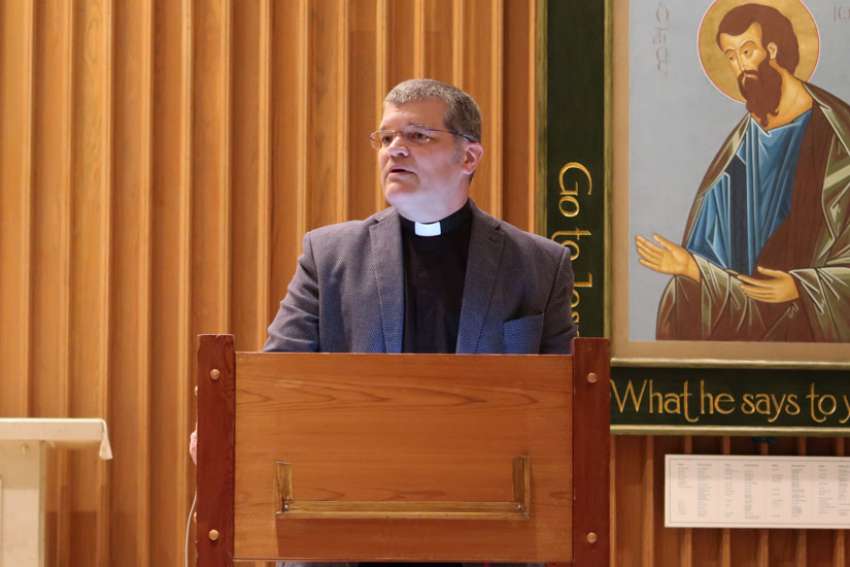As part of the College’s Professional Development Certificate program, Fr. Gilles Mongeau is conducting a three-lecture series to unpack “Pastoral Guidelines to Assist Students of Same-Sex Orientation,” published by the Assembly of Catholic Bishops of Ontario education commission.
“Our purpose at Regis in offering this mini-course is practical,” said Mongeau. “Given the pastoral guidelines... How can the various actors in a Catholic high school implement practices that are appropriate to their role to ensure that LGBT students feel safe, are informed and receive the psychological and pastoral accompaniment that can help them flourish as persons and as disciples of Christ.”
Mongeau said educators within the Catholic high school system need to be equipped because it is within this age range that students begin to explore their sense of identity and sexuality.
Mongeau said educators and other concerned lay people are not without resources. This document, originally published in 2004 and updated inMay, is a good start.
“One of the real breakthroughs in the update of last May, there is an insistence that wasn’t so clear in the original document that we begin with persons, real persons,” he said.
Mongeau said moral theology is not a good substitute for good psychology. Discussions in moral theology within the mini-course, which began Oct. 13 and runs to Nov. 3, will not help the teacher or the chaplain who is in front of a teenager who needs to have a conversation.
Instead, the lecture series will provide workable teachings that will help educators understand their role in accompanying LGBT youth.
“We start from psychological health and from there, we invite people to a discernment on how they want to live their life and their vocation,” said Mongeau.
The Church does not take an official position on the psychological causes of sexual orientation or issues of gender identity. Therefore, Mongeau asserts that educators can look to what psychological studies are saying about sexual orientation and gender identity.
“First and most important thing to remember is that a homosexual orientation is not a psychological disorder,” said Mongeau. “I shouldn’t have to say that but the reality is that it is still, in some circles of the Church, understood and it’s even believed that the Church teaches... this is simply not what psychology tells us.”
Modern psychological studies agree that homosexual orientation does not lead to more or less maladjustment than those with a heterosexual orientation. As such, the role of the educator is not to correct or repair.
“Mainly, the educator needs to respect what’s going on in (counselling) and then accompany the student in terms of the faith dimension of that,” said Mongeau. “The educator will help the student that struggling with, ‘Did God give me this body that I struggle with, that is uncomfortable?’ That’s a big faith question and the psychologist can’t help the teenager with that but a good high school chaplain can.”
Mongeau said that because studies in gender identity and gender dysphoria are a new field of knowledge, this is a more difficult topic to address.
Gender dysphoria is when a person experiences persistent feelings of identification with the opposite sex and distress with one’s own biological sex.
During the three-lecture series, Mongeau aims to “debunk myths and break down nuances of understanding.”

